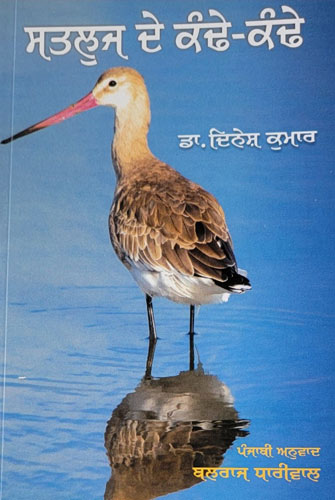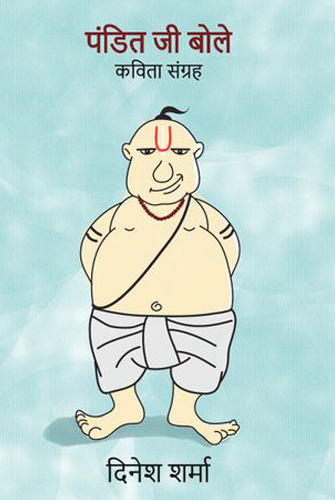
The author was born in Nangal Township, which was described as a ‘place of pilgrimage’ for modern India by none other than Pandit Jawahar Lal Nehru, the first Prime Minister of independent India. The year was 1956 and India was still recovering from the aftermath of bloody partition of the country in the year 1947. A poverty ridden and resource poor country had been further impoverished by destruction of agriculture, industry, businesses, and households. Pandit Nehru, had set in motion the process of nation rebuilding and construction of Bhakra Dam, a hydroelectric project over Sutlej River was centerpiece of this marathon effort. As a young child the author witnessed the turbulent journey of an incipient nation. The book is a collection of memoirs of his childhood spent on the banks of Sutlej River. It chronicles the events of 1960s that shaped the destiny of most populous country and largest democracy of world.
Buy Paperback or Kindle edition
Amazon USA: https://www.amazon.com/dp/B08R4951KK
Amazon Canada: https://www.amazon.co.uk/dp/B08R4951KK
Amazon UK: https://www.amazon.co.uk/dp/B08R4951KK
Amazon India: https://www.amazon.in/dp/B08R361BP1
Barnes & Noble: https://www.barnesandnoble.com/w/on-the-banks-of-river-sutlej-dinesh-kumar-sharma/1139732965
When I jumped off a moving train
The Bhakra Dam situated about fourteen kilometres from Nangal Township was connected to township by both rail and road. The senior officers used to transit between Township and project site using personal vehicles such as cars, jeeps, or pick up vans. The staffers and junior officers used to travel via buses and labourers travelled to the dam site via a train. The five coaches of this train were made in Karachi in the year 1923 according to a blogger. These were hauled by 400 HP GE diesel locomotives.
The train would make multiple trips in a day because project work continued round-the-clock. One compartment was reserved for the residents of the surrounding villages and the train provided free service to them. The final stop of the train was Olinda (at least that is what I believed) where all the labourers would get down and from there buses ferried them to different work sites of the project.
My friends in school often used to talk about the free fun trips they used to make on the train. They were surprised that I had never been on the train for the free ride. The idea of a free train ride had always enticed me, but I was afraid of going alone. My class fellows continued to push and prod me and one fine day I surrendered to the temptation and decided to bite the bullet.
It was a warm summer afternoon, and my mother was enjoying her nap. I ventured out of my home and walked to the train stop which was not very far from my home. The labourers who were going for evening shift were waiting for the train. The train arrived and I noticed that in the first compartment only a few ladies and children were sitting. I boarded the train and occupied a window seat. I was both excited and scared. My heart was beating very fast, and my face was flushed. With a bated breath I waited for the train to begin its journey.
Finally, the train started and gradually began to pick up speed. It was slowly approaching the hills and the spread of river Sutlej as it landed on the plains began to appear. The vista was breath taking and I began to enjoy the ride. The train crossed several tunnels both big and small. The river was flowing with a speed as it came down the hills and the sight of its clear blue waters was fascinating. It was not long before the train completed its fourteen-kilometer journey and reached Olinda.
The workers got down the train and started boarding the buses. I continued to sit in the train, some women and children also did not get down. I thought they had also come to enjoy the free ride. After a brief stop the train resumed its onward journey whereas I was expecting it to commence the return trip. I panicked as I was clueless where the train was going now. My heart began to pound, my legs and hands were trembling. Afterall I was only a nine-year-old child. The train was beginning to pick up speed. Petrified that the train was going to some other distant place, I decided to jump out of the train. I gathered courage, came to the door and throwing caution to the winds took the plunge. I fell on the side of the tracks with a thud. The women in train shouted stop, stop. The train came to a screeching halt and driver looked out of the window and showered choicest abuses on me. Luckily, I had not sustained any injury. I got up and ran towards the platform. I was visibly embarrassed and was trying to avoid the probing looks the people were giving me.
As I sat on the bench with tears in my eyes a labourer who was sitting by me asked me why I jumped out of the train. I told him I did not know where the train was going. I freaked out as I have to go back to Nangal. He smiled and told me the final destination of the train is Cement Cell station, only a couple of miles from Olinda.
The train returned after about half an hour. In the meantime, buses had begun to arrive loaded with labourers who had finished their morning shift. I quietly boarded the train and sat on a corner bench.
As the train reached Nangal I came out and ran towards my home. My mother was waiting for me. I never told anyone about my misadventure. But now when I recall the moment when I jumped out of a moving train it sends shudders down my spine. I was lucky to have escaped without an injury.
Buy Paperback or Kindle edition
Amazon USA:
https://www.amazon.com/dp/B08R4951KKAmazon Canada:
https://www.amazon.co.uk/dp/B08R4951KKAmazon UK:
https://www.amazon.co.uk/dp/B08R4951KKAmazon India:
https://www.amazon.in/dp/B08R361BP1Barnes & Noble:
https://www.barnesandnoble.com/w/on-the-banks-of-river-sutlej-dinesh-kumar-sharma/1139732965

